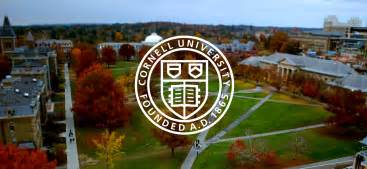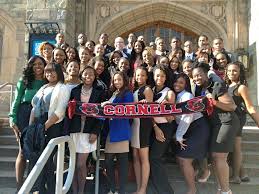
(Apparently Black solidarity doesn’t count when it appears one group of blacks is benefitting above another. While they may work together against whites, they are just as tribal as if in Africa. Nevertheless, white people will still get the blame) AltRightTV
Scott Jaschik, Inside Higher Ed, October
Cornell University, like other colleges, regularly reports to the federal government on the demographics of its students.
{snip}
But who counts as black? That is a question that has been debated periodically at colleges, especially those that are highly competitive.
{snip}
Black students at Cornell have held a series of protests this fall.
{snip}
The demand: “We demand that Cornell admissions come up with a plan to actively increase the presence of underrepresented black students on this campus. We define underrepresented black students as black Americans who have several generations (more than two) in this country.
{snip}
“Cornell must work to actively support students whose families have been impacted for generations by white supremacy and American fascism.”
Cornell counts students for race and ethnicity much like other colleges do.
{snip}
But Cornell does not ask those who are U.S. citizens or permanent residents who identify as black how many generations their families have lived in the United States. So the child of immigrants from Africa or the Caribbean, born as a U.S. citizen and who identifies as black, counts. The university does not track what percentage of its black students meet the standards set in the demands of Black Students United.
{snip}
And the issue can be deeply personal for many, and raise uncomfortable questions. President Obama, as the son of an African man and a (white) American woman and celebrated as the first African-American president, wouldn’t have been the kind of student Cornell’s black students want as a recruitment focus.
Among the previous times when the question of difference among black students became much discussed was in 2004, when two prominent black professors at Harvard University — Lani Guinier and Henry Louis Gates Jr. — raised the question during reunion weekend. In 2004, about 8 percent of Harvard undergraduates were black. Guinier and Gates said that a majority of those students — perhaps as many as two-thirds — were either immigrants from Africa or the West Indies or their children.
{snip}
A 2007 study published in The American Journal of Education (abstract available here) found that black immigrants made up 27 percent of black college students in the United States.
{snip}
A key finding was that the immigrant students are not getting ahead because of wealth relative to other black students. The socioeconomic status of the two groups was, on average, similar, with many facing poverty.
The demand of Black Students United is drawing opposition from some at Cornell who don’t fit the definition of black students on which the group would like to see the university focus. “Combating White Supremacy Should Not Entail Throwing Other Black Students Under the Bus” was the headline of a column in The Cornell Daily Sun, the student newspaper. The author, Yvette Ndlovu, is from Zimbabwe. She noted that only about 3 percent of Cornell’s international student population is from Africa, suggesting that limiting international student recruitment of people who are black should not be the focus of those who want more African-American students on campus.
{snip}
“Everyone from the African diaspora may all experience racism on the individual level (being called the N-word and being restricted from a white frat party being only the tip of that iceberg),” Jones said. “But international students who call another place home don’t have to deal with the ingrained institutional and structural forms of oppression in the same way American black students do. (Housing discrimination, mandatory-minimum sentencing, war on drugs, school-to-prison pipeline, etc.)”
